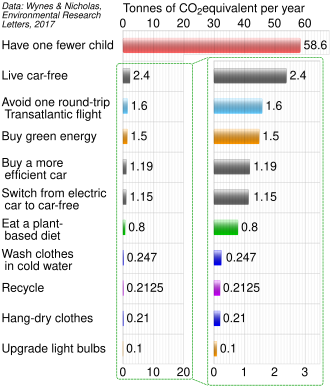Car-free movement






== Car-free movement ==
The car-free movement is a social and political effort to reduce the reliance on automobiles for transportation and to promote alternative forms of transportation such as walking, cycling, and public transport. The movement advocates for the creation of car-free zones, pedestrian-friendly areas, and the development of urban planning strategies that prioritize people over cars.
History[edit]
The origins of the car-free movement can be traced back to the early 20th century when urban planners and social reformers began to recognize the negative impacts of automobile dependency on urban environments. The movement gained momentum in the late 20th century with the rise of environmental awareness and the recognition of the health and social benefits of reducing car usage.
Goals[edit]
The primary goals of the car-free movement include:
- Reducing air pollution and greenhouse gas emissions.
- Improving public health by encouraging physical activity.
- Enhancing the quality of life in urban areas by reducing traffic congestion and noise pollution.
- Promoting sustainable transportation options.
- Creating safer and more accessible public spaces.
Strategies[edit]
The car-free movement employs various strategies to achieve its goals, including:
- Establishing car-free days and events to raise awareness.
- Implementing congestion pricing and low-emission zones.
- Developing extensive bicycle infrastructure and pedestrian pathways.
- Enhancing public transportation systems.
- Encouraging mixed-use development to reduce the need for long commutes.
Examples[edit]
Several cities around the world have implemented car-free initiatives, including:
- Copenhagen, known for its extensive bicycle network.
- Freiburg, which has a comprehensive public transport system and car-free zones.
- Bogotá, famous for its Ciclovía program, which closes streets to cars on Sundays and holidays.
Criticism[edit]
The car-free movement faces criticism from various stakeholders, including:
- Concerns about the economic impact on businesses reliant on car traffic.
- Challenges in implementing car-free policies in car-dependent regions.
- Resistance from individuals who view car ownership as a symbol of freedom and status.
See also[edit]
- Sustainable transport
- Urban planning
- Public transport
- Cycling infrastructure
- Pedestrian zone
- Environmental movement
Related pages[edit]
- Sustainable transport
- Urban planning
- Public transport
- Cycling infrastructure
- Pedestrian zone
- Environmental movement
Lua error in package.lua at line 80: module 'Module:Buffer' not found.
Ad. Transform your life with W8MD's Budget GLP-1 injections from $75


W8MD offers a medical weight loss program to lose weight in Philadelphia. Our physician-supervised medical weight loss provides:
- Weight loss injections in NYC (generic and brand names):
- Zepbound / Mounjaro, Wegovy / Ozempic, Saxenda
- Most insurances accepted or discounted self-pay rates. We will obtain insurance prior authorizations if needed.
- Generic GLP1 weight loss injections from $75 for the starting dose.
- Also offer prescription weight loss medications including Phentermine, Qsymia, Diethylpropion, Contrave etc.
NYC weight loss doctor appointmentsNYC weight loss doctor appointments
Start your NYC weight loss journey today at our NYC medical weight loss and Philadelphia medical weight loss clinics.
- Call 718-946-5500 to lose weight in NYC or for medical weight loss in Philadelphia 215-676-2334.
- Tags:NYC medical weight loss, Philadelphia lose weight Zepbound NYC, Budget GLP1 weight loss injections, Wegovy Philadelphia, Wegovy NYC, Philadelphia medical weight loss, Brookly weight loss and Wegovy NYC
|
WikiMD's Wellness Encyclopedia |
| Let Food Be Thy Medicine Medicine Thy Food - Hippocrates |
Medical Disclaimer: WikiMD is not a substitute for professional medical advice. The information on WikiMD is provided as an information resource only, may be incorrect, outdated or misleading, and is not to be used or relied on for any diagnostic or treatment purposes. Please consult your health care provider before making any healthcare decisions or for guidance about a specific medical condition. WikiMD expressly disclaims responsibility, and shall have no liability, for any damages, loss, injury, or liability whatsoever suffered as a result of your reliance on the information contained in this site. By visiting this site you agree to the foregoing terms and conditions, which may from time to time be changed or supplemented by WikiMD. If you do not agree to the foregoing terms and conditions, you should not enter or use this site. See full disclaimer.
Credits:Most images are courtesy of Wikimedia commons, and templates, categories Wikipedia, licensed under CC BY SA or similar.
Translate this page: - East Asian
中文,
日本,
한국어,
South Asian
हिन्दी,
தமிழ்,
తెలుగు,
Urdu,
ಕನ್ನಡ,
Southeast Asian
Indonesian,
Vietnamese,
Thai,
မြန်မာဘာသာ,
বাংলা
European
español,
Deutsch,
français,
Greek,
português do Brasil,
polski,
română,
русский,
Nederlands,
norsk,
svenska,
suomi,
Italian
Middle Eastern & African
عربى,
Turkish,
Persian,
Hebrew,
Afrikaans,
isiZulu,
Kiswahili,
Other
Bulgarian,
Hungarian,
Czech,
Swedish,
മലയാളം,
मराठी,
ਪੰਜਾਬੀ,
ગુજરાતી,
Portuguese,
Ukrainian